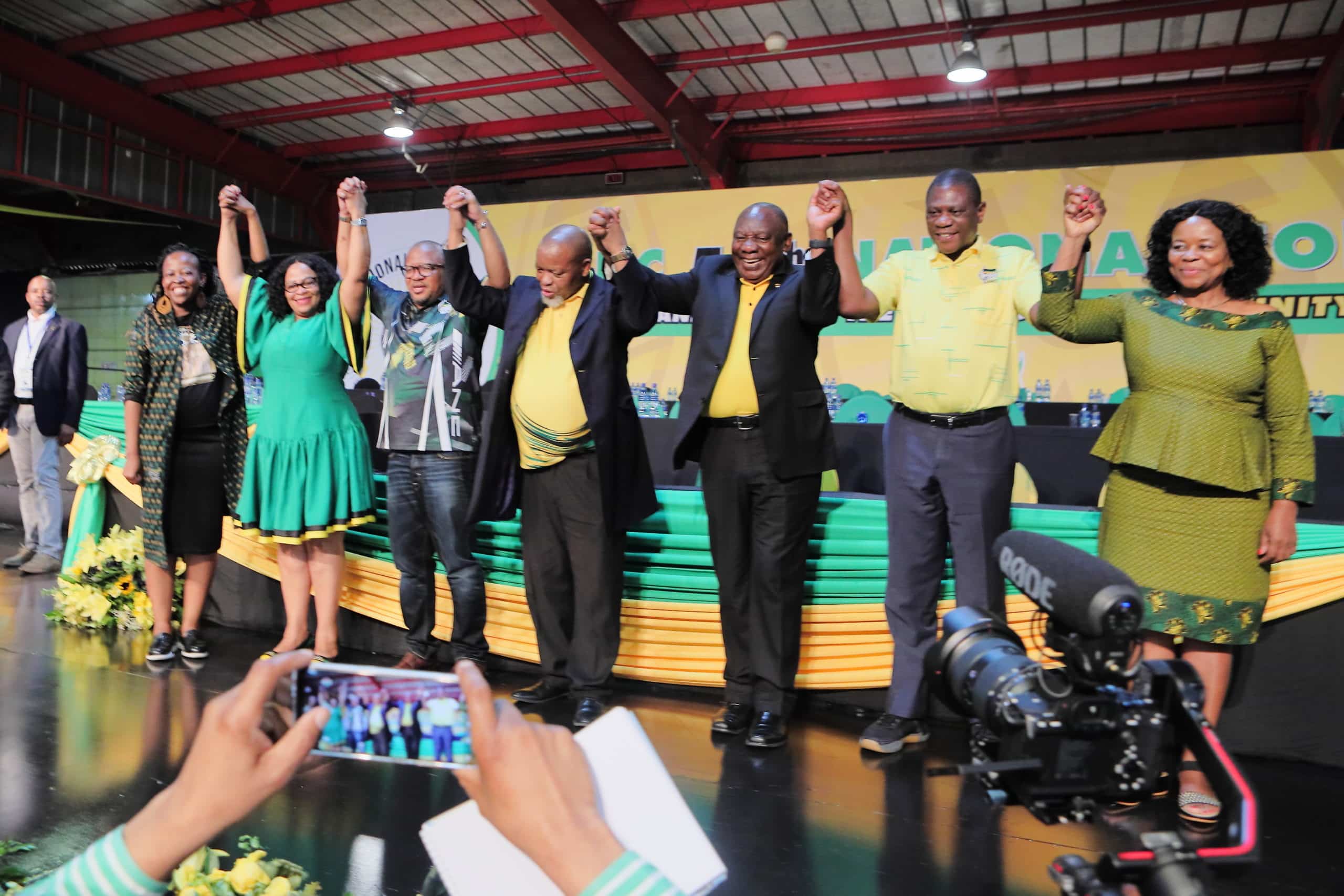By Paula Slier
As predicted, South African president Cyril Ramaphosa has won the presidency of the ruling African National Congress (ANC) for a second term. Even the markets appreciated the news with the South African rand strengthening against the dollar.
But judging from how ANC delegates behaved at the party’s 55th elective conference that wrapped up this week, it’s clear the political culture within the party is still the same. The division between Ramaphosa’s allies and the aggrieved and aspirant who are part of a loosely-defined group called the ‘Radical Economic Transformation’ (RET) is as obvious as it is concerning.
Despite its vagueness, the RET is destined to remain a central and powerful bloc within the ANC and a constant constraint on Ramaphosa’s leadership and any of his efforts to reform the economy and promote clean governance.
Still, the ANC made history when delegates voted three women to the top seven party positions. A first in the organization’s 110-year history, or as the newly elected Gwen Ramaphosa put it, “I am embarrassed to be the first woman to be elected as the ANC’s Treasurer-General”.
Seeking a second term as party President, Ramaphosa was described by many commentators as “a shoo-in for re-election” – the only question was who would surround him? But doubt seeped in following revelations of a robbery at his private game farm in 2020. It was less the robbery than the contents which sowed uncertainty about his presidential prospects. More than $500,000 was alleged to have been stuffed in his sofas when the alleged robbery took place.
True to character, Ramaphosa has been hiding for the better part of the past week, following a parliamentary panel report that found preliminary evidence of improper conduct by the President and recommended he face impeachment inquiry.
The question is what happens now? Will unity prevail among the two divided groups which are meant to be one within the ANC? And more urgent, what will be Ramaphosa’s priorities going forward?
South Africa needs him to govern on behalf of the country, not only the ANC. Party members have clearly given him the benefit of the doubt regarding the scandal at his game farm, the details of which he has still to fully explain. Not only is he expected now to heal the divisions within his party, but he should not repeat the mistake he made during his first term when he spent way too much time trying to unite the ANC and bringing in some of those members who wanted to get rid of him.
South Africa’s economy is hobbling along. The energy crisis has reached crisis levels as South Africans prepare for a bleak, load-shedding (power cuts) ‘festive’ season as the country’s electricity public utility, Eskom, generates output plummeting to completely new lows.
And then there’s the crime. More people die in South Africa each day than in the Russia-Ukraine conflict. This crime ‘capital’ of the world continues to impact businesses and scare away investors. Many young South Africans, especially graduates, believe they live in a hopeless economy that does not create job opportunities for them. One of the main recommendations at the conference was to give the ANC leadership a new look by including young people in leading positions.
As for Africa, what does Ramaphosa’s re-election mean for the continent?
The South African president seemingly still has the interest of Africa at heart. In February this year he spoke highly about the developmental challenges the continent faces. He noted that building a better Africa and a better world was the cornerstone of South Africa’s foreign policy and that for Africa to
play a full and equal role in global affairs “we must first attend to the developmental challenges of the people of Africa,” he said.
“We must develop our own economies through the African Continental Free Trade Area (AfCFTA), promoting investment and tourism within Africa, accelerating industrialization and driving green growth and low-carbon development. We must end all conflict and entrench democracy and good governance.
“Africa has found a new voice. It is bold and unapologetic in its expectations of our partners. At the same time, we are determined that Africa’s challenges must be, are being, and will be, solved by Africans themselves,” said Ramaphosa.
